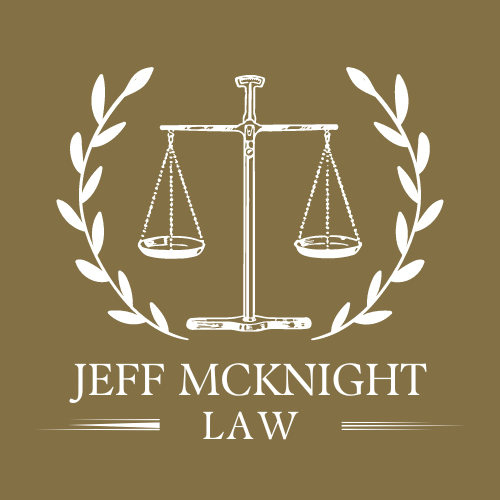
Starting a business is an exciting yet challenging venture, and having the right legal assistance can make all the difference. At JeffMcKnightLaw, we understand that navigating the legal landscape can be daunting, especially when it comes to ensuring everything is set up properly from the get-go. In this article, we will cover the essential questions you should ask a lawyer to protect your new business from potential legal pitfalls. With our years of experience in handling complex legal matters, we’re here to guide you every step of the way in making your entrepreneurial dreams a reality.
From the point of view of starting a business, ask about the best legal structure, necessary permits or licenses, and potential liabilities. These questions help ensure legal compliance and protect your interests.
Legal Structure Options
When starting a business, you can choose from fascinating legal structures like sole proprietorship, partnership, corporation, and LLC.
As a rule when starting a business, you can choose different ways to set it up, and each has its own pros and cons.
1. Sole Proprietorship: This is where one person owns and runs the business. It’s easy to start but the owner is responsible for all the business’s debts.
2. Partnership: In this setup, two or more people share ownership and responsibilities. It’s good for sharing decisions and resources, but each partner can be held responsible for the business’s debts.
3. Limited Liability Company (LLC): An LLC protects the owners’ personal assets from business debts. Essentially speaking however, it involves some paperwork and fees.
4. Corporation: This is a separate legal entity from its owners, offering the most protection against personal liability. But, it requires more paperwork and can be taxed twice—once on profits and again on dividends to shareholders.
Choosing the right structure for your business depends on your goals, how much risk you’re willing to take, and your long-term plans. It’s a good idea to talk to a lawyer or accountant to help you decide. They can explain how each option affects your taxes, control over the business, and personal financial risk.
Necessary Business Licenses
Businesses often require multiple licenses and permits, which can vary widely not only by industry but also by location, to comply with legal regulations.
Let me explain, the licenses you need can change based on what kind of business you run and where it’s located. These licenses are important to make sure your business follows the law. Common ones include general business licenses, special permits for things like food service or building work, and professional licenses for fields like healthcare or real estate. If you don’t have the right licenses, you could face fines, penalties, or even be forced to shut down.
Before starting your business, you should find out which licenses you need. This might mean talking to local, state, and federal offices, filling out forms, and paying some fees. Some licenses need to be renewed every year or regularly. If you don’t follow these rules, it could cause problems for your business and hurt your reputation. Also, not having the right licenses can be unsafe for your employees, customers, and the public.
It’s a good idea to talk to a lawyer or someone who specializes in business licenses to make sure you’re covered. By getting all the required licenses and permits, you can run your business legally and avoid potential legal troubles.
Intellectual Property Protection
Intellectual property protection ensures that inventors and creators can exclusively profit from their innovations, often sparking further creativity and advancements by providing a competitive edge.
For the most partprotecting intellectual property is important because it helps creators make money from their work and inspires new ideas and inventions. There are different ways to protect these creations:
- Patents: Keep new inventions safe.
- Trademarks: Protect logos and brand names.
- Copyrights: Safeguard original pieces like books, music, and art.
- Primarily- Trade secrets: Guard valuable business information.
These protections give creators the right to decide how their work is used and to earn from it. This is very important in today’s digital world, where things can be easily copied without permission. Protecting intellectual property ensures that creators get the credit they deserve and encourages a culture of innovation and creativity.
Contract Essentials
Contracts are binding documents that have historically shaped major transactions, including the purchase of the Manhattan island.
As a rule, the key parts of a contract are an offer, acceptance, exchange of value, ability to make a deal, and a legal goal. An offer is when one person suggests a deal to another, explaining what they want. Acceptance is when the other person agrees to those terms. Exchange of value means both sides give something of worth, like money, goods, or services. Both people must be able to legally make a deal, meaning they are old enough and mentally fit.
Let me explain, the goal of the contract must be legal and not break any laws. Contracts should be clear and specific to avoid confusion or problems. It’s also a good idea to put contracts in writing to have proof of the agreement and to make sure the terms can be enforced if needed. Knowing these basic parts of a contract helps in making valid and enforceable agreements.
Risk and Liability Management
Risk and liability management helps businesses and individuals foresee potential dangers and implement strategies to reduce or eliminate them, often safeguarding against significant financial loss.
When it comes down to it, this includes setting up safety rules, buying insurance, and making backup plans. By managing risks ahead of time, businesses and people can avoid losing money, facing legal issues, and hurting their reputations. It’s important to regularly check and update risk management plans to keep up with new challenges. When risks can’t be fully avoided, liability management is needed.
To simplify, this means deciding who is responsible if something goes wrong and taking steps to reduce legal problems. This might involve creating contracts, forming legal businesses, and keeping good records of transactions. Good risk and liability management require looking ahead, planning, and making smart choices. By staying alert and constantly watching for risks, individuals and businesses can lessen the impact of unexpected events and protect themselves from serious liabilities.

In the End
When starting a business, it is very important to ask a lawyer about entity formation, intellectual property protection, contracts, and potential liabilities.
What JeffMcKnightLaw is guiding you through is, by seeking legal advice early on, business owners can ensure they are taking the necessary steps to protect their interests and work through any legal challenges that may arise.






